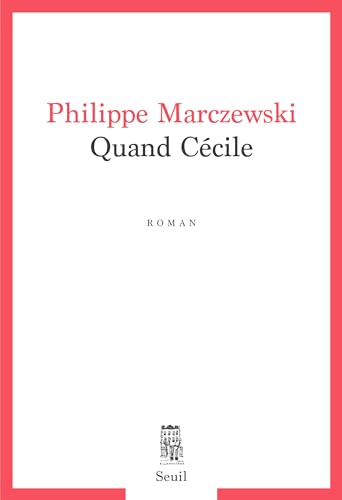Quand Cécile by Philippe Marczewski

“voilà comment on oublie les choses, comment on oublie les êtres, et comme il oublie Cécile, et il voudrait empêcher cette béance qui s’ouvre peu à peu dans sa mémoire de dévorer son visage parce que l’oubli est injuste et brutal, il avale la couleur des yeux, la forme des mains les parfums et les mots et ne laissent affluer que le souvenir de la mort”
“This is how one forgets things, how one forgets people, and how he forgets Cécile, and he’d like to prevent this gap that’s gradually opening up in his memory from devouring his face, because forgetting is unfair and brutal, it swallows up the color of eyes, the shape of hands, perfumes and words, and leaves only the memory of death to flow in”.
How to express absence, or rather, how to express the multi-dimensions of absence? This seems to be PM’s project in Quand Cécile. Cécile was 27 when she died in a plane crash. Our narrator had met and loved her when they were students. Then, by mutual agreement, they parted; for both of them, the timing wasn’t right.
Years later, our narrator learns of Cécile’s death, goes to the funeral and regrets not having known her better. As time passes, he crosses path with a woman in the street who reminds him furiously of Cécile. Clinging to the emotions that continue to run through him like a narrative thread, he sets out to defy oblivion, to defy the dead woman, and to imagine Cécile alive again.
Quand Cécile, Philippe Marczewski, Seuil.


